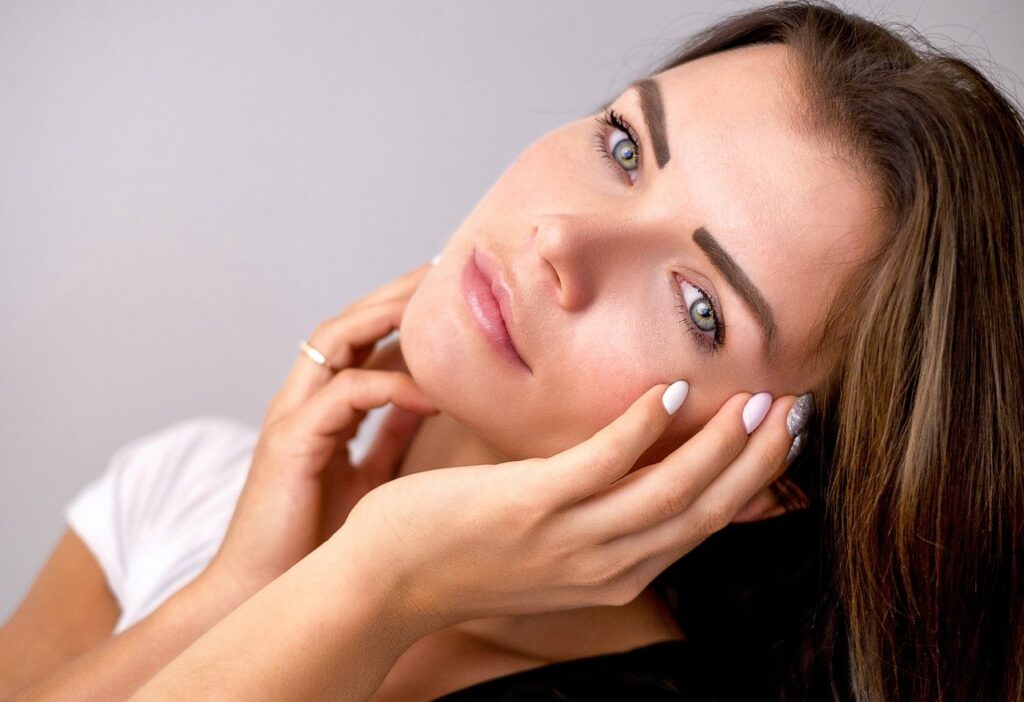Table of Contents
The skin is famously the largest body organ. Its primary purpose is offering protection from foreign external bacteria and other pathogens. When the skin layer is compromised, its ability to act as a barrier is impaired.
Additionally, the skin plays an essential role in defining an individual’s physical appearance, which influences everything from internal mental health and personal comfort to the way you are treated by others (for better or worse).
Maintaining your skin is essential for your overall health and appearance but knowing how to do that can be particularly challenging.
So, what does “natural” mean? Companies nowadays use aggressive marketing strategies to push their products, and often the meaning of words becomes confused because of fads and studied focus groups.
While it is a mistake to think that natural ingredients are unprocessed as they transition from their natural state (i.e., honey from bees, fruits, etc.), nevertheless the amount of processing, additives, and manipulation that comes as a part of turning beeswax into something like beard balm is something that people are more and more aware of.
So, when thinking of natural, think of things in nature that did not require intense manipulation at the chemical level, but also understand that coconut doesn’t oil itself.
Beyond that, always remember that each person’s unique biology means that there are some solutions here that may or may not work for you. Use discretion and consult with your doctor where appropriate.

Using Natural Skincare Products
Coconut Oil
Coconut oil is extracted from the coconut plant and is beneficial for its anti-inflammatory and hydration effects. Advanced research indicates that virgin coconut oil suppresses the body’s natural inflammatory agents, making the skin look better. Moreover, it’s associated with fighting skin diseases such as eczema and psoriasis. Many people use coconut oil as their skincare strategy due to its ability to fight dry and itchy skin. However, it is essential to contact a physician before application.
Aloe Vera
Aloe Vera is a versatile plant used in many consumer goods, such as beverages and cosmetic products. It is rich in various biologically active substances, such as glycoprotein, phytochemicals, choline, and enzymes. Besides helping in digestion, Aloe Vera is famous for its anti-inflammation properties, and it is effective in reducing progression and itching of striae. However, experts indicate that it should be used in moderation since it can cause skin irritation.
Avocado
Avocado contains essential nutrients and phytochemicals, such as vitamin A, B1, B2, B12, and fatty alcohol. It has anti-inflammatory properties and acts as a protective agent against UV-induced skin damage.
Honey
Humans have a history of using honey for thousands of years for a variety of things from food natural food preservation and flavoring, distilling into drinks, and a variety of integrated uses for products involving beeswax.
There could be an entire article by itself about the nature of honey and it’s daily uses. For the purposes of this article, honey is also being developed into products for skin as well.
New movements in the skincare industry have been pushing the development of honey into a variety of products whether it comes from simple lotions or more dedicated efforts like Manuka Gold Honey.
Cedarwood Oil – contains a natural fragrance that aggravates the skin.
Keep Moisture in the Skin
Skin moisturizers keep the skin hydrated and seal in the moisture. Keeping the skin hydrated helps in fighting off wrinkles, which gives a healthier glow. The American Academy of Dermatology recommends the following ways to help keep the skin hydrated:
-Using warm water instead of hot water
-Moisturize immediately after washing
-Preventing bath sponges and washcloths that can damage the skin’s surface
-Using oil annulments instead of lotions to prevent skin irritation.
-Handling the skin gently
Green Tea
Green tea is a popular skincare remedy popular for its sun protection, anti-inflammation, and anti-aging properties. Green tea contains compounds known as polyphenols, which help rejuvenate dying skin cells. Studies show that it may be useful for healing skin wounds and certain skin conditions, such as eczema.
Maintaining a Low-Calorie Diet
Research studies indicate that reducing calorie intake slows down the skin’s aging process. Reducing calorie intake causes the ribosome activity to slow down, hence, decelerating the aging process.
Apply Turmeric All Over Your face
This skincare routine is popular with Indians, having used it for thousands of years. It’s an effective and easy skincare strategy due to the anti-inflammatory effects of turmeric. Also, it can soften the skin, reduce swelling, clear acne, and diminish wrinkles. However, it is essential to consult a physician before application because it may affect different types of skin.
Protect Your Skin from the Sun
Avoiding direct exposure to the sun is a simple and effective skincare strategy. Direct exposure can cause wrinkles, age spots, and skin-related conditions, such as skin cancer. The following are ways to prevent direct exposure from the sun:
-Using sunscreen
-Wear protective clothing
-Seek shade
Manage Stress
Studies indicate that unmanageable stress makes the skin sensitive and leads to acne breakouts and other skin problems. To foster healthy skin, it is essential to ensure a healthy state of mind and get enough sleep. Skincare is often confusing to many people due to the various conflicting information about the subject.
However, using skincare strategies such as avoiding direct exposure to the sun, managing stress, maintaining a healthy diet, and keeping the moisture skin are inexpensive natural ways to ensure healthy skin.















